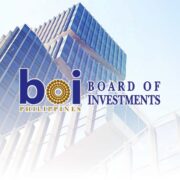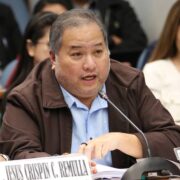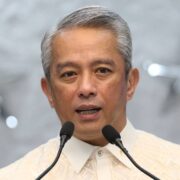BSP seen easing rates in 2024, regardless of Fed

The Bangko Sentral ng Pilipinas (BSP) is expected to make its own easing move later this year no matter what the US Federal Reserve would decide on the timing of its rate cut, as the former’s decision would likely be driven by developments onshore, London-based Capital Economics said.
Gareth Leather, senior Asia economist at Capital Economics, said the Philippines and other Asian central banks, namely Thailand, Vietnam and Korea, would look into local factors—not the actions of the Fed—to determine their next moves.
Leather said Thailand would be the first to relax in Asia with a cut in June, followed by Vietnam, the Philippines and Korea. All four, he explained, will continue their easing cycles throughout the second half of the year even if the Fed stays on hold.
“We expect policymakers in Thailand, Vietnam, the Philippines and Korea to lower interest rates later this year, regardless of whether the Fed cuts,” Leather said in an emailed commentary.
While most analysts forecast a rate cut from the BSP this year, the projection of Capital Economics runs counter to expectations that the Philippine central bank will move in tandem with the Fed to avoid pressuring the peso and fanning inflation.
Struggling growth
Leather argued that, in the past, interest rates in Asia did not track yields in the United States.
“With growth struggling and inflation concerns easing, we still expect policymakers to start loosening policy soon,” he added.
For this year, the Marcos administration tempered its growth target to 6 to 7 percent, from 6.5 to 7.5 percent previously, as consumption, a major growth driver, continued to feel the sting of stubbornly high inflation and expensive borrowing costs.
The BSP has so far kept its key rate unchanged at 6.5 percent, the tightest in nearly 17 years. What’s prompting the central bank to stay hawkish is a persistently high inflation that may breach the BSP’s 2- to 4-percent target anew.
A battered peso is also forcing the BSP to keep local yields competitive, as the greenback regained strength recently amid heightened tensions in the Middle East and increasing bets on a delayed easing by the Fed.
The local currency last Wednesday pierced through the 57-level for the first time since late 2022, although BSP Governor Eli Remolona Jr. said the “initial” weakness would not have an impact on monetary policy.
But Remolona admitted that the room to loosen monetary policy has narrowed, with the “central scenario” now pegs a fourth quarter ease, and if things “are worse than we think.”
Remolona said the BSP might postpone the rate cut to the first quarter of 2025.
“Stronger activity and inflation data in the US along with more hawkish comments from the Federal Reserve have shifted investor expectations for when the Fed will start to loosen monetary policy,” Leather said.

















